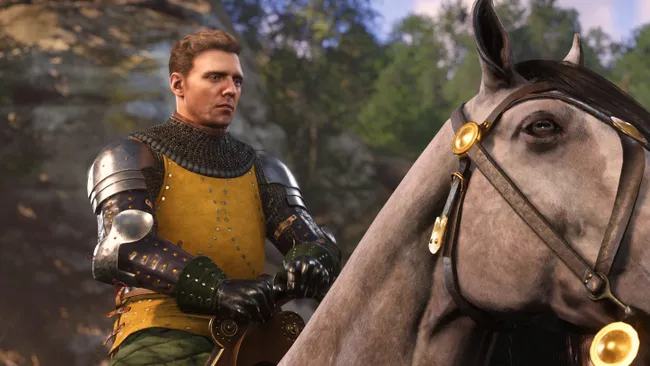Warhorse Studios co-founder Daniel Vávra has refuted a recent report that Kingdom Come Deliverance 2 was banned in Saudi Arabia due to an unskippable LGBT cutscene.
The story-driven action role-playing game Kingdom Come Deliverance (2018) takes place in the medieval Kingdom of Bohemia. Although it presents itself as a historically accurate depiction of the scene, in the months after its debut, the absence of persons of color became a topic of discussion.
Players should anticipate a slightly different experience in Kingdom Come Deliverance 2, which is scheduled for release on February 4, 2025, but again relies on historical accuracy for its return to medieval Bohemia. According to Warhorse, the main character Henry will come across a diverse array of nationalities and characters because he travels from the countryside to a somewhat cosmopolitan city under siege and occupied by an invading king.
According to reports, a Saudi news organization tweeted that Kingdom Come Deliverance 2 was prohibited in Saudi Arabia. Western media then picked up the story and shared it on social media and in forums.
Vávra has refuted the allegation and clarified how Kingdom Come Deliverance 2 operates on social media. According to Vávra’s tweet, “at least not that we know of,” it has no unskippable cutscenes and has never been or is prohibited in any nation.
After pointing out that the original Kingdom Come Deliverance featured LGBT characters, Vávra asserted that players are responsible for their choices while playing the game. Vávra said, “If you want Henry to attempt a same-sex adventure, feel free.” “You do not have to if you do not want to. Everything is (and was in KCD1) entirely optional. The fact that it was a transgression that was prohibited is well known to the characters.
Kingdom Come Deliverance 2 was the most recent video game to be pointed out for being “woke” or incorporating “forced diversity” after the Saudi Arabia ban rumor. This is a rising internet trend that some publishers and developers have felt compelled to combat in recent months.
Vávra made it apparent that he dislikes “forced diversity” in his response to the online criticism of Kingdom Come Deliverance 2, stating that “nobody was pushing us to do anything, and we are not forcing anyone to do certain things.” He then restated Warhorse’s earlier remarks regarding the sequel’s more diversity compared to its predecessor.
“A huge foreign army besieged one of the wealthiest towns in Europe, where the game is set,” he explained. Life in a metropolis like this is more varied than that of the villages that were portrayed in the original game because of this.
Musa met King Sigismund at the court of Sultan Bayezid, and he brought an invading army to Bohemia as a member of his royal court. He is a Renaissance man from the Kingdom of Mali who is educated and aristocratic.
However, many of the scenarios in the game revolve around Musa, who is a rather strange figure for the local Bohemian people. As a result, his presence makes sense and gives the game many intriguing scenarios. He has a rationale for his speech and actions.
“Everything on exhibit is in line with the social mores and morals of 1403 Bohemia and is merely there to create an engaging narrative—not at all to appeal to a modern audience.'”
The term “modern audience” is now frequently used online to disparage games that are thought to appeal to a wide range of players. The phrase “contemporary audience” has become a cliché in the continuing culture war and is cited in the demise of anything from Concord to Suicide Squad: Kill the Justice League.
In closing, Vávra retaliated against the anti-woke brigade whose anxieties he had attempted to allay. He claimed that some of them tragically became the very narrative that they claimed to be against. “The prevalence of nasty behavior is heartbreaking and will harm any related causes.”

